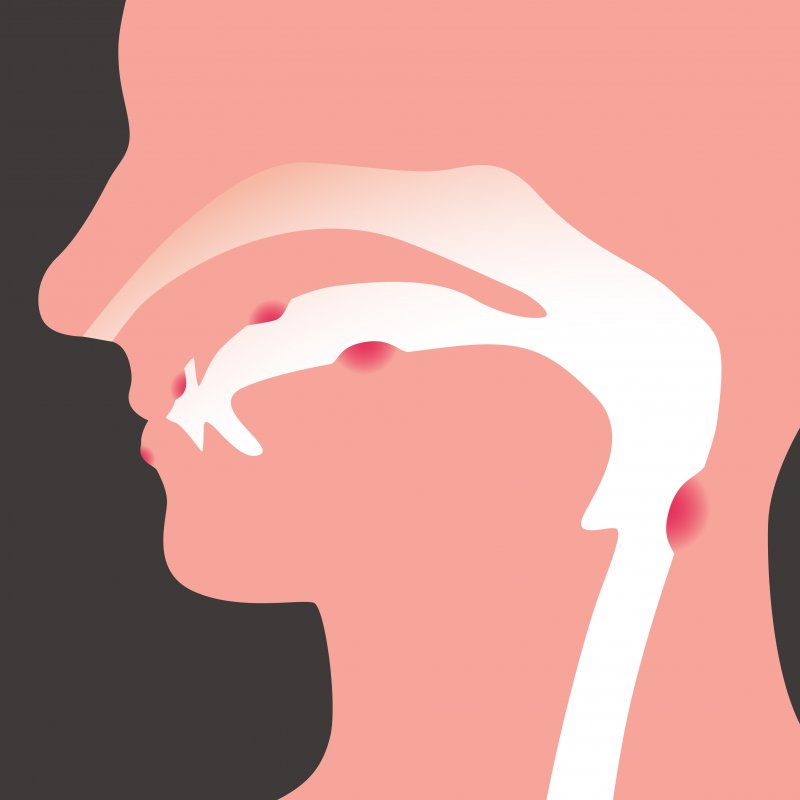
April is Oral Cancer Awareness Month, which is a time when dentists do what they can to educate their patients about the dangers of this horrible disease. Being vigilant and finding problems early is vitally important to protect yourself from oral cancer, so it’s useful for people to know what risk factors to watch out for.
In the interest of raising awareness, here are some of the key risk factors for oral cancer, and some of the symptoms that are associated with it.
What Can Put Me at Risk for Oral Cancer?
By demographic, the people most likely to contract oral cancer are men over the age of fifty who smoke and drink often. While there isn’t much that you can do about your age, you can significantly reduce your chances of contracting oral cancer by cutting back on how often you use these substances.
Oral cancer has also been connected to the sexually transmitted disease HPV. While a vast majority of people have no problems, a small percentage of people can develop a higher risk of oral cancer down the line as a consequence of HPV. Thankfully, there is a readily available vaccine for this disease, so you should make sure that you and the people you love are protected.
What Are Some Signs of Oral Cancer?
If you’ve ever tried to self-diagnose an oral health problem, you’ve probably scrolled through WebMD and come away wondering whether you have cancer. That’s because oral cancer can look a lot of different ways, and bears a strong resemblance to a variety of other oral health problems.
The primary distinction is that symptoms caused by oral cancer won’t heal on their own over time. If you find that you’re dealing with one of these symptoms for several weeks, it may be connected to oral cancer.
- Sores and ulcers, especially those that bleed very easily when touched
- Red or white patched on the gums, tongue, or cheeks
- Any lumps or growths in the mouth
- Difficulty swallowing or chronic sore throat
- Hoarseness
- Chronic, unexplained cough
- Hard, painless, immobile lumps located on the neck
About the Author
Dr. John Roberson became a dentist because he wanted to find a way to feed his family while helping people who needed it. He aims to make dentistry as convenient as possible for his patients. Dr. Roberson received his dental degree from the LSU School of Dentistry, and since then has become a member of the American Dental Association, Louisiana Dental Association, and the Academy of General Dentistry.
If you have any questions about oral cancer, we can be reached at our website or by phone at (318) 343-2633.
